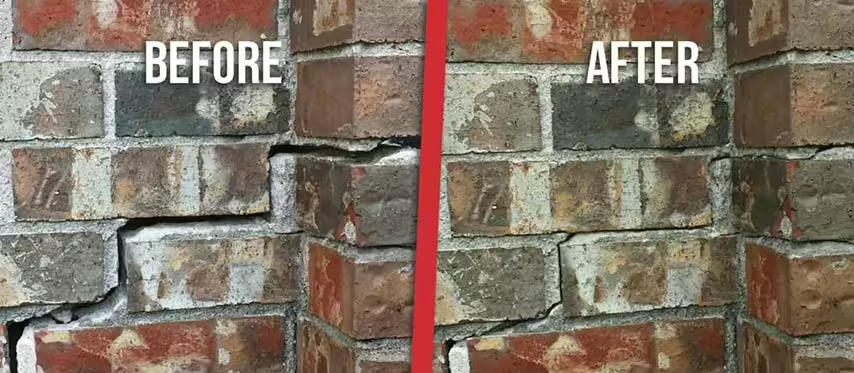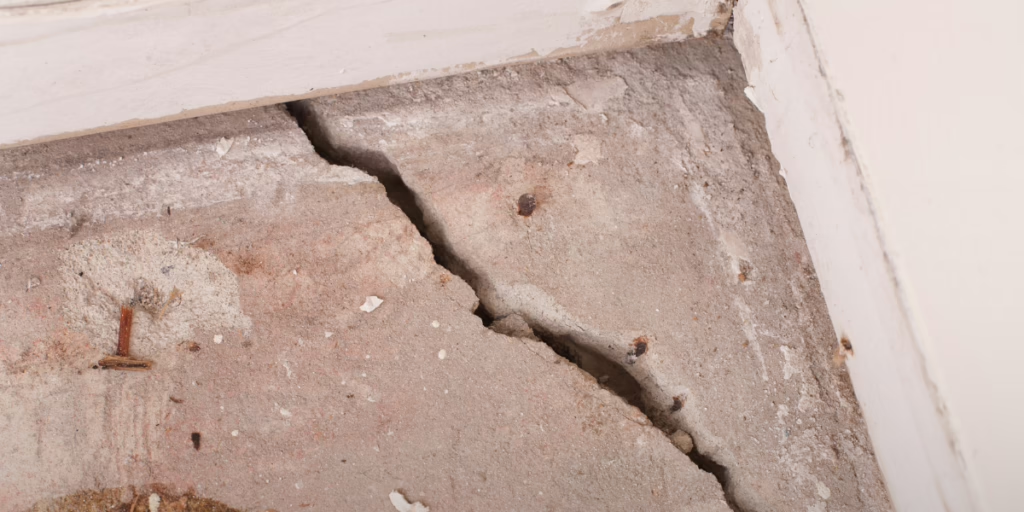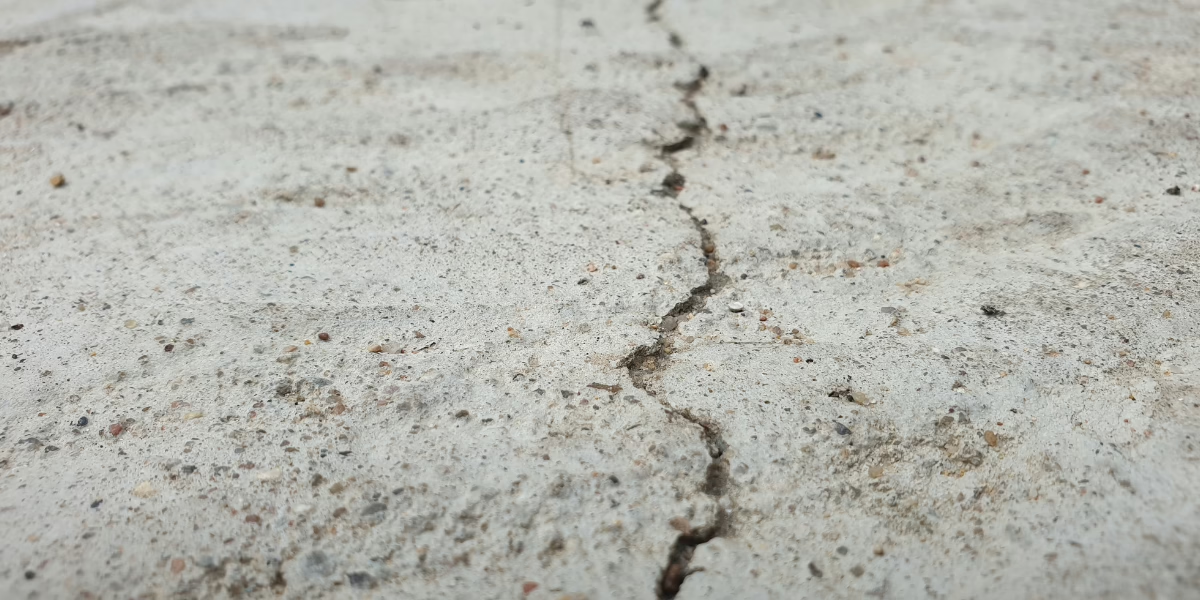Worried your foundation might be cracked? You’re in the right place. This guide will help you recognize those signs, what causes them, and what next steps to take.
Small signs inside or outside your home can point to bigger problems below the surface. Foundation issues can affect your home’s value, safety, and comfort.
Common Signs of a Cracked Foundation
| Inside Your Home | Outside Your Home |
| • Sticking doors or windows • Cracks in drywall • Uneven floors • Baseboards or trim pulling from walls • Sloping or sagging floors • Cabinets or counters separating from wall • Cracks in tile or flooring | • Stair-step cracks in brick • Gaps around windows or doors • Leaning or tilting chimney • Sunken porches or steps • Standing water near foundation • Gaps between fascia or rooflines |

Check out these before and after pictures.
What Causes Foundation Cracks?
Foundation cracks happen for a few different reasons. A common one is soil movement. As the soil under your home shifts (due to drying out, getting saturated with water, or settling) it puts pressure on the foundation. That pressure can lead to a cracked foundation.
Poor drainage is another big one. If water isn’t directed away from your foundation, it can seep into the soil and weaken your structure. Tree roots can also be an issue. Large roots growing too close to your home may displace soil and cause uneven pressure.
Weather extremes, especially freeze-thaw cycles or long droughts, can make the ground expand or contract. Over time, that stress builds up and shows itself as cracks in your foundation.
We know…that’s a lot of ways a foundation can end up cracked! Soil, water, weather, even trees… it’s like the whole yard is in on it. But don’t worry. Knowing the causes is half the battle.
Types of Foundation Cracks
Not all cracks are the same. Here’s a quick breakdown of what different types of cracks can mean:
- Hairline cracks – These are very thin and often show up as concrete cures. Usually, they’re cosmetic.
- Horizontal cracks – These can be serious. They may point to pressure from soil or water pushing against the wall.
- Vertical cracks – These are more common and sometimes less serious. But they can still let in water if they widen over time.
- Diagonal cracks – Often caused by uneven settling, these may start small but can get worse if ignored.
We always recommend having a professional take a look to be sure.

When to Be Concerned
So how do you know if a crack is harmless or something to worry about? Here are some red flags:
- Wide cracks (or ones that keep growing)
- Cracks paired with sticking doors, uneven floors, gaps
- Water leaking in through your foundation
- Visible mold or damp smells near the area
If you’re seeing more than one of these signs, it’s time to take action. Cracks that grow or allow water intrusion are unfortunately, more than a cosmetic issue.
Now, take a breath….not every crack means disaster. Most homes settle a bit over time, and catching things early is the smart move. We’re here to help you figure it out. No pressure, no panic.
What You Should Do Next
Here’s what the crew at Leveled Concrete suggests:
- Take photos and notes – Document the size and location of any cracks.
- Monitor over time – If the cracks get longer or wider, that’s a sign things are moving.
- Skip the DIY kits – Surface patching won’t fix the underlying cause. DIY can sometimes make it harder for pros to assess the damage later.
- Call in an expert – A foundation specialist can inspect and give you a plan based on what’s really happening. It really is the safest way to get peace of mind about a potential cracked foundation.
We know it can feel overwhelming when you start spotting cracks or other signs of foundation trouble. But you’re not alone in this. Taking a few simple steps now can prevent a lot of stress later. You’re doing the right thing by being proactive!
How Leveled Concrete Can Help
We’ve helped thousands of homeowners deal with foundation issues across the Greater Houston area. Our team starts with a thorough inspection. We’ll look at both the symptoms and the source of the problem.
One solution we often use is polyurethane foam injection. It’s quick, clean, and gets the job done without digging up your yard. We inject foam under the slab to fill gaps and lift the cracked foundation back into place. The results are long-lasting and minimally disruptive.
You can count on honest recommendations, clear communication, and repairs done right the first time. That’s why so many local homeowners trust us!

